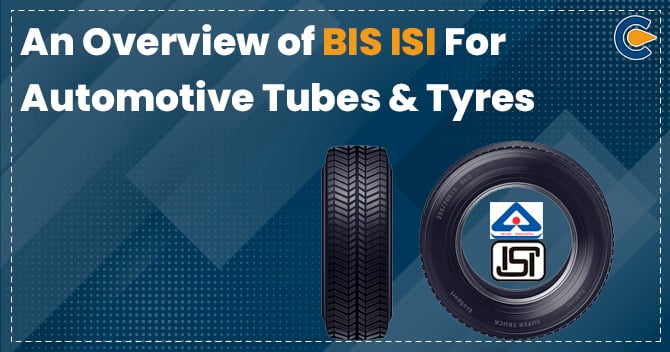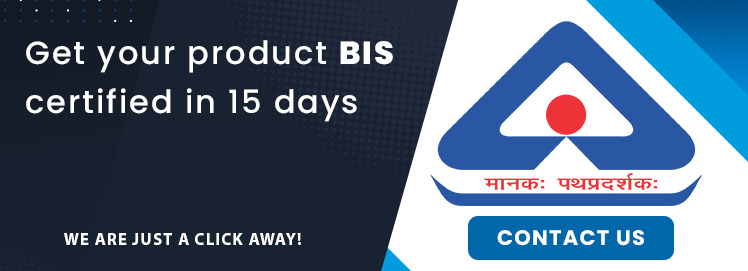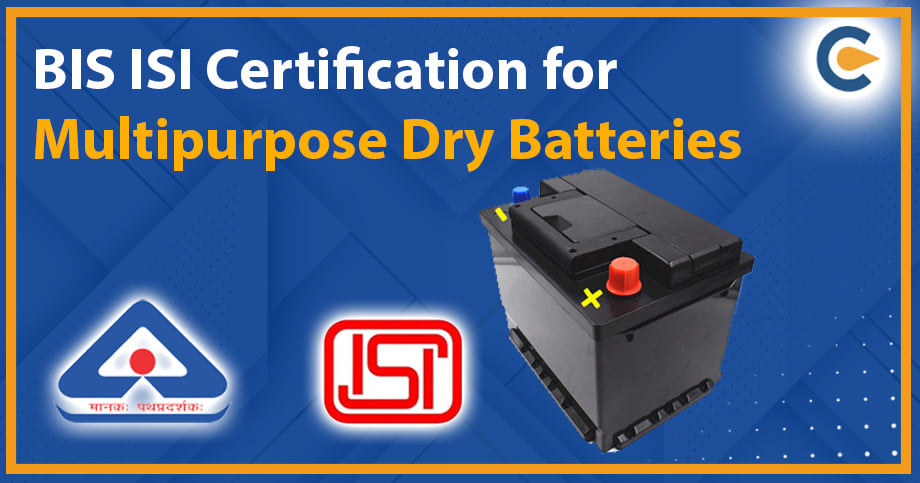All models & brands of automotive vehicles-Pneumatic tyres for two & three-wheeled motor vehicles are required to obtain ISI Certification, before their launch or import into the Indian market. BIS ISI for Automotive Tubes & Tyres will only be provided to product manufacturers (whether Indian or foreign) and not to traders, dealers, or distributors.
Bureau of Indian Standards grants BIS ISI for Automotive Tubes & Tyres. ISI certification is renowned for assuring quality to the customer. Only the Product manufacturer is qualified for BIS Certification. There are a number of products that are covered by the BIS certification list.
To obtain BIS ISI for Automotive Tubes & Tyres, the manufacturer must test the product in-house against the IS standard. Then it will be necessary to submit a request to the BIS office with all relevant documentation. The BIS officer will then conduct a physical audit at the factory. The ISI Certificate will be issued after the factory and all necessary documentation have been verified.
Which BIS Certification is Applicable on Tyres?
BIS includes three certification schemes, namely –
- Indian Standards Institute (ISI)
- Foreign Manufacturers Certification Scheme (FMCS)
- Compulsory Registration Scheme (CRS)
These three certifications are applicable to distinct types of products, although ISI and FMCS[1] products, such as food items, steel rods, cement, etc., are similar. In contrast, CRS products include mobile phones, computers, laptops, and other electronic devices.
ISI is a certification programme applied to Indian manufacturers that verifies a product’s compliance with predetermined standards. Thus, the product can be easily introduced to the Indian market. While FMCS is applicable to foreign manufacturers, it is intended to ensure that a product manufactured abroad conforms to India’s established standards. While ISI is an online process, FMCS is significantly more extensive due to its manual process and numerous on-site activities.
Updates on BIS ISI for Automotive Tubes & Tyres
The Bureau of Indian Standards (BIS) committee has revised and updated the Indian tyre standards in April 2022. Since 2009, India has required BIS-ISI certification for automobile tyres. IS 15633:2005 applied to tyres for passenger cars, IS 15636:2016 to tyres for commercial vehicles, and IS 15627 to tyres for two and three-wheelers, rickshaws, and similar vehicles, as well as small vehicle.
Categories of BIS ISI for Automotive Tubes & Tyres
Following are the categories of BIS ISI for Automotive Tubes and Tyres:
- IS 15627 is the standard mark used for Automotive vehicles – Pneumatic tyres for two and three-wheeled motor vehicles;
- IS 15633 is the standard mark used for Automotive vehicles – Pneumatic tyres for passenger car vehicles – Diagonal and radial ply
- IS 15636 is the standard mark used for Automotive vehicles – Pneumatic tyres for commercial vehicles – Diagonal and radial ply.
FMCS and BIS ISI for Automotive Tubes & Tyres
FMCS is a programme under which a foreign manufacturer is granted a BIS licence in accordance with the Bureau of Indian Standards (Conformity Assessment) Regulations, 2018. The license is issued for products that comply with applicable Indian Standards. The Standards may be certified voluntarily or mandatorily.
BIS licence for the use or apply Standard Mark is given for products made in a manufacturing premise and meeting all relevant Indian standard requirements.
ISI Certification Process for BIS ISI for Automotive Tubes & Tyres
- The application form must be completed.
- Additionally, a factory inspection will be performed to evaluate the manufacturing infrastructure, manufacturing methods, quality control, and testing capabilities.
- While in an inspection, a product sample will be collected and sent to a third-party laboratory for analysis.
- The test result of the product sample will be utilised for review.
- Lastly, you can receive the certificate if your product meets the established criteria.
FMCS Certification Process
- The application will be properly filled out and accompanied by the necessary documents.
- Along with the submission of the application form, the required fee will be paid, and a factory inspection will be conducted to confirm the manufacturing and testing infrastructure.
- During factory inspection, a product sample will be collected for independent testing.
- Once the inspection and independent test report confirm that the product conforms to BIS standards, the registration process will advance.
- Prior to receiving a licence, the applicant must pay the licence fee and minimum advance marking fee.
- After payments have been made, the Agreement, Indemnity Bond, and a Performance Bank Guarantee must be provided immediately after a licence is granted.
- The FMCS certificate will be issued if a product meets the BIS requirements.
- With the BIS certification process for automotive tyres, it is established that ISI and FMCS are distinct. In addition, it should be noted that ISI certification is an online process, whereas FMCS certification is an offline process, which further complicates matters.
What is the validity of BIS license?
Initial BIS certification under Scheme-I may be granted for up to two years upon payment of the minimum marking fee in advance. The licence only applies to the varieties listed on the licence. For the extension of the license’s validity and varieties covered, an application with the required fee and supporting documentation must be submitted. Licenses may be renewed up to five years after their expiration.
Conclusion
The Bureau of Indian Standards (BIS) was established by the Bureau of Indian Standards Act of 1986 to promote the harmonious development of the activities of standardisation, marking, and quality certification of goods in India, as well as to handle related matters.
IS 15633 of the Bureau of Indian standards stipulates that all tyres for road vehicles must bear the ISI Mark. The Bureau of Indian Standards, through the Gazette of India, has issued an order for automobile tyres. Manufacturers & importers must submit an application for BIS ISI for Automotive Tubes & Tires. Ensure that the vehicle’s tyres bear the ISI mark.
Read our Article:A complete study of BIS ISI for Wires & Cables













